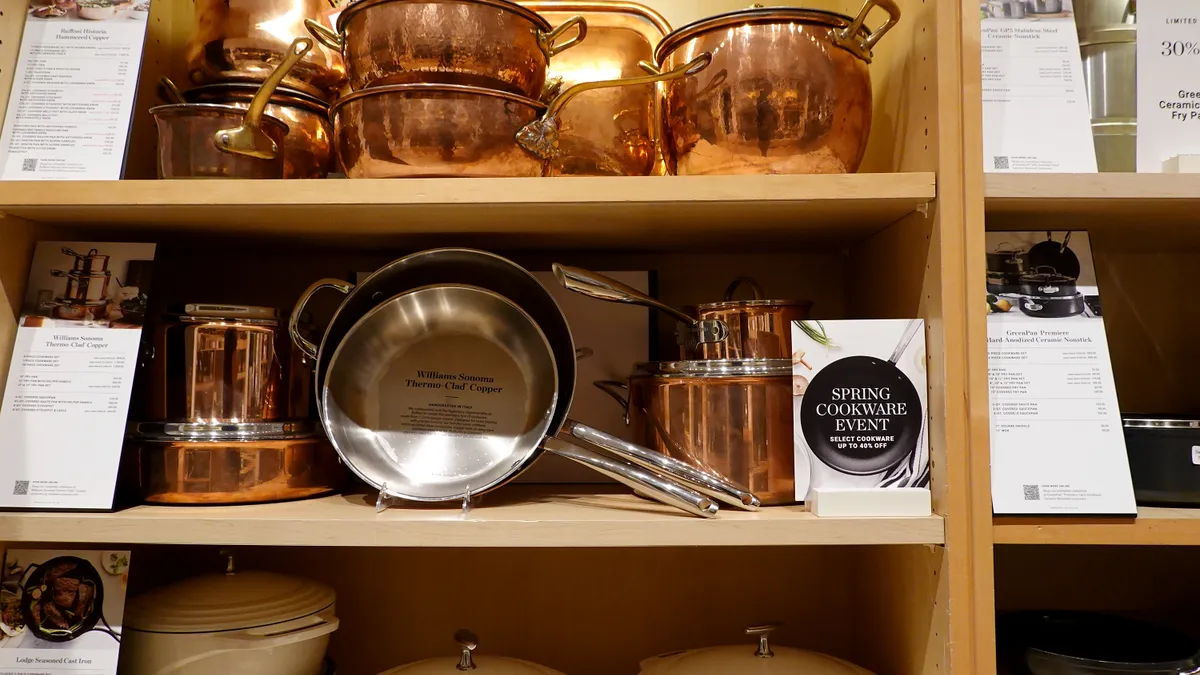Dive Brief:
- Williams-Sonoma sees an opportunity to achieve higher product margins under increased tariffs, President and CEO Laura Alber told analysts during a March 19 earnings call.
- Because Willaims-Sonoma designs most of what it sells, Alber says the home products retailer can leverage its scale, supply chain capabilities and exclusive product line to get ahead of competitors and not be “stuck in price wars with people.”
- “We also have long relationships with our vendors overseas and our own sourcing organization on the ground, which I don't think any of our competitors have,” the CEO told analysts.
Dive Insight:
Like many other retailers looking to curb tariff impacts, Williams-Sonoma has been moving its sourcing footprint away from China in favor of areas that are “cheaper and un-tariffed, easier to do business in,” Alber said. In 2020, the company said it was going to reduce its China-based production by 50% by the end of that year.
Williams-Sonoma CFO Jeff Howie outlined a six-point plan to offset tariff impacts on the March 19 call, building off strategies the company discussed back in November. Since then, the Trump administration has instituted a wide swath of new tariffs, with more promised. Howie said the retailer is focused on obtaining cost concessions from vendors, re-sourcing goods away from China to lower-cost countries and identifying supply chain efficiency.
The retailer also aims to move some production back to the U.S., which is already one of its major manufacturing hubs. Howie said Williams-Sonoma procures 18% of its products coming from the country — making it the retailer’s second largest source of goods.
As it leans to produce more goods domestically, it also sees opportunities to expand its Made in USA assortment — which garnered scrutiny from the Federal Trade Commission in 2020 — production and partnerships, Howie told analysts.
“That product got a lot more appealing now from a margin perspective given these tariffs, and it makes it very hard to compete with us because we have great price[s],” said Alber.
She also highlighted the company’s Sutter Street Manufacturing subsidiary, which produces a large portion of Williams-Sonoma’s upholstery.
The retailer reported supply chain savings of 10 basis points in Q4, Howie told analysts, due to efficiency in manufacturing, warehousing and delivery. The CFO added that those savings will help offset the impact of tariffs as key metrics, such as returns, out-of-market shipping and multiple deliveries per order, continue to improve year over year.
Kelly Stroh contributed to this story.














